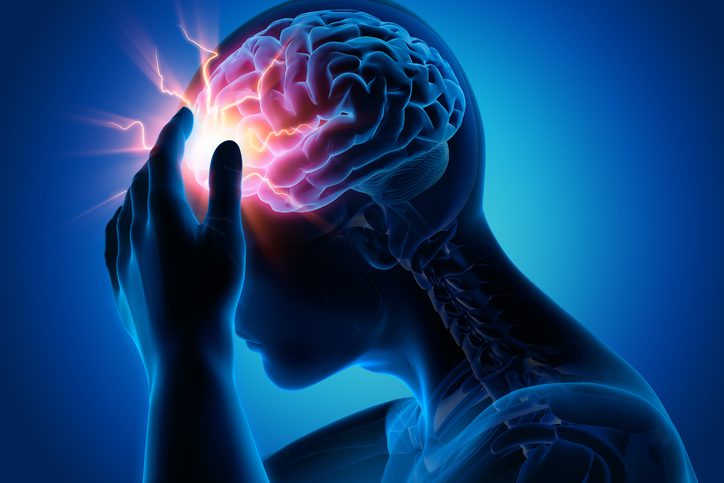Types Of Brain Injuries And Symptoms

Types Of Brain Injuries And Symptoms
Traumatic brain injuries affect an estimated 1.5 million people in the United States each year and brain injuries are the leading cause of death and disability among children and young adults. As a result of these brain injuries:
- 230,000 people are hospitalized and survive.
- 50,000 people die.
- 80,000 to 90,000 people experience the onset of long-term disability.
As a consequence of these injuries, an estimated 5.3 million individuals are living with a permanent brain injury disability in the United States.
Brain injuries vary in severity, and a wide range of symptoms can appear immediately or be delayed, such that it is worth taking the time to become aware of and understand what a brain injury is and the symptoms to look for to signal the need for treatment.
Understanding the types of injuries and how we can be proactive to prevent injuries can be the difference between temporary and permanent disability, and the difference between life and death. Failure to seek medical attention can be devastating – immediately contact a medical professional if you suspect you or a loved one has suffered a brain injury.
Traumatic Brain Injury Defined
Traumatic brain injuries are often referred to as TBIs. The term means that an injury or action occurred in which the brain was suddenly jolted or harmed and potentially damaged.
One common and well-known traumatic brain injury is a concussion, but there are many other types of brain injuries one should be aware of. Some brain injuries can be severe and lead to major injury, disability, or even death in severe cases.
Common Brain Injuries
Brain injuries can occur from a variety of accidents such as impacts during physical sports, military activities, car accidents, slip and falls, workplace injuries, and more. Let’s review some of the most common types of brain injuries.
Concussion
A concussion is perhaps the most common traumatic brain injury and can vary in severity. Concussions happen in any situation in which you suffer a sudden change in momentum and the brain strikes the interior of the skull. This could be from extreme acceleration, a rapid change in direction, or a blow to the head.
Contusion
A contusion refers to a bruise, and in the case of a brain injury, it is caused when the brain is bruised from a sudden impact. It is typically more severe than a concussion. If both sides of the brain are bruised, it is called a coup contrecoup injury. Many times a contusion could lead to slurred speech, troubles concentrating, cognitive disabilities, difficulty balancing, numbness and tingling, and more.
Diffuse Axonal
This type of traumatic brain injury is often caused by severe rotation or shaking rather than a simple sudden impact. An impact may occur and appear to be the leading cause, but there is generally more movement involved with a diffuse axonal injury. Diffuse axonal differs from a contusion or concussion in that the rotation causes tearing of the nerve fibers in the brain. These are hard to capture on imaging scans and in severe circumstances may lead to a coma.
Penetration
A penetration, or penetrating brain injury occurs when something passes through the skull and reaches the brain. Sports equipment, loose items in a car during a car accident, mismanaged tools in a workplace can all cause penetrating brain injuries. Such injuries are always severe and can cause permanent disability or death.
Primary Vs. Secondary Brain Injury
There are both primary and secondary brain injuries that can occur. A primary TBI is from a sudden injury to the brain that occurs at the time of the incident. A car accident, a fall, and other types of injuries will cause the sudden injury. You can often identify the injury and assess it right away.
A secondary injury can take time to show symptoms. A brain injury may present itself right away or take time to show symptoms, and those symptoms can change over time and worsen. These are identified as a secondary brain injury to the primary incident.
Brain Injury Symptoms
In addition to knowing something about the types of injuries, it is important to be familiar with brain injury symptoms so that you can seek immediate medical attention if a brain injury is suspected.
- Dizziness or loss of balance
- Nausea
- Vomiting
- Fatigue or drowsiness
- Problems with speech, slurring
- Headaches
- Any period of unconsciousness
- Seizures or convulsions
- Confusion
- Sensitivity to light and sounds
- Blurred vision
- Ringing in ears
- Change in taste or smell
- Dilation of one or both pupils
- Weakness or numbness of fingers or toes
- Difficulty concentrating
If you or someone you know is experiencing any of these symptoms, it is important to seek immediate medical attention.
Should you or a loved one suffer a traumatic brain injury caused by an accident, you might be entitled to compensation for your injuries. Contact an experienced traumatic brain injury lawyer to learn more.
Contact Wilson Reeder & Zudar Law
If you or a loved one have suffered a brain injury in an accident, you can count on the experienced personal injury lawyers Wilson Reeder & Zudar Law to help you understand your legal right to fair compensation for your injuries. Wilson Reeder & Zudar Law will fight aggressively and passionately to help ensure the best results for you and your family. Call us today or contact us online to schedule your free consultation.
